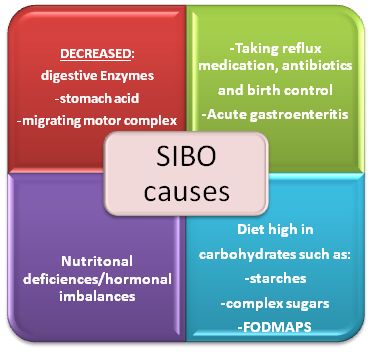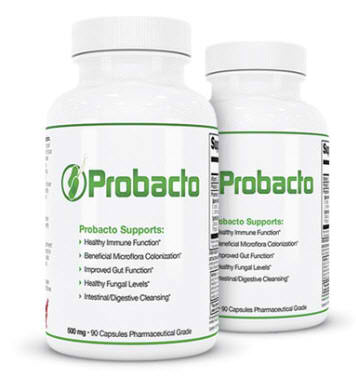Do Probiotics Cause or Help Gas and Bloating?
What is the link between probiotics gas, and bloating? What are the best probiotics for these two abdominal problems? Can gut bacteria cause excessive gas and bloated stomach? Read on to find out.
Probiotic and Gas and Bloating? Do Probiotics Cause Gas & Bloating
It is important that you understand how gas comes about. Most are times when you either complain or hear others complain about feeling their stomachs too filled with gas. At times referred to as abdominal bloating or abdominal distension, it remains a common and significant and bothersome problem.
Abdominal distension is however used to refer to an appreciable amount of increase in the size of the abdomen when it is either filled with gas or some other cause such as peritonitis (infection of the peritoneum). It is known to mask its real causative agent compelling you or the medical practitioner to focus on the bloating rather than the actual problem.
According to the Digestive System Research Unit, Hospital General Vall d’Hebron, bloating is merely regarded as a secondary descriptor. This is in support to the former statement that describes its assumed inherent causes such as:
Drugs
There are drugs that cause bloating such as aspirin and the biggest culprits, antacids and multivitamins. However, the biggest concern of this material is the ability of probiotics to cause bloating. While they are considered generally safe for most of those who use it them, it may result in the user developing adverse reactions to them.
There is a connection between those who take more than the recommended daily dosing especially if you are taking 1 – 2 billion probiotic cells daily. The University of Maryland Medical Center backs this up among other gastrointestinal side effects such as diarrhea.
There are people who are lactose intolerant and by taking probiotic supplements, especially those that contain milk, bloating and gas is triggered. This mostly occurs a few minutes after the first dose before your gut becomes accustomed to it. Well, this happens when you do not check for dairy products in the probiotics you have bought.
Probiotics are also known to alter the population of gut microflora which leads to gas and bloating. There are species that lead to gas while other do not.
Scientific studies have however not extensively studied probiotics and their hand in causing gas and the most acceptable reason behind some probiotics causing it is dose dependent.
This means that most of the probiotics with L. acidophilus, Bifidobacterium spp and Bacillus coagulans are effective in reducing gas and bloating but with an excessive intake, are most likely to cause gas.
Other causes
Other causes of gas in people who are not taking probiotics include[1]:
- Impaired control of reflexes of the gut – there are gut transit studies that have evidenced the role of impaired viscerosomatic reflexes in the build-up of gas in the gut. This impairment leads to reduced peristalsis of the gut muscles and therefore reduced transit of gut contents.
- Segmental pooling – this is a consequence of reduced transit of gut contents or rather, a mechanical blockage of the gut. It could also be due to an inflammation or a tumorigenic blockage. Pooling of contents in a particular segment leads to increased gas.
- Irritable Bowel Syndrome – bloating could also occur independent of an underlying factor. This is mostly due to psychological means. Mostly Irritable Bowel Syndrome (IBS). Over two decades ago and the postulation according to Kellow et al[2] still demonstrates that IBS can cause impaired transit and gas. Organic mental disorders or organic brain syndrome could also lead to bloating. In this case, bloating is treated as a condition rather than a symptom of the broader defect.
Probiotics for Bloating and Gas -How do probiotics help bloating and gas
Probiotics have widely been shown to help in the treatment and management of gas and bloating. Though probiotics have not been shown to provide definite cure for diseases, they can at least reduce the severity of gastrointestinal problems including gas and bloating. This is how:
Management of irritable bowel syndrome
known as a multifactorial gastrointestinal condition affecting 8 – 22 % of the population. Its clinical manifestation include excessive flatus, abdominal bloating among others such as abdominal pain and distension. It is commonly caused by malfermentation in the gut and reduced gut motility and content transit.
According to literature review in the research by J. A. J. Madden and J. O. Hunter, fecal microflora in IBS has been shown to be abnormal with increasing numbers of facultative organisms. They further revealed that low numbers of lactobacilli and Bifidobacteria are too associated. This is where probiotics come in with the replenishment of the two mentioned ‘good’ bacteria. IBS is ameliorated therefore.
Effective for small intestine bacterial overgrowth (SIBO)
This refers to a condition that results in an abnormally large number of bacteria. This has been quantified as at least 100, 000 bacteria per mL of fluid. It occurs thereof due to an increasing population of pathogenic bacteria that are responsible for the varied signs and symptoms seen such as diarrhea, gas, and bloating and weight loss. Intake of probiotics allows your gut regain its normal balance of microflora and therefore outwit the pathogenic bacteria.
Management of lactose intolerance
There is evidence that L. acidophilus is good for those who are not able to digest milk lactose and who are therefore lactose intolerant. According to a clinical trial, the bacteria species is able to digest lactose on your behalf and therefore prevent the effects of intolerance to the sugar in milk.
A study sponsored by Rabin Medical Center further showed that those who took yoghurt tolerated the lactose in it better than the same amount in milk. The presence of Lactobacillus bulgaricus and Streptococcus thermophilus alleviate lactose intolerance through their ability to produce lactase enzyme.
To add, flatulence and gas was reduced in subjects who took milk containing Bifidobacterium longum since it resulted in reduced hydrogen production.
Treatment of dysbiosis
This is the regain of the balance of good to bad bacteria in the small intestine. Since the probiotics furnish the small intestines with good bacteria, there is likely to occur an imbalance between the two. This has resulted in the relief of gas due to IBS and leaky gut syndrome.
Tips to Choose the Best probiotics for gas and bloating
Now that you know that probiotics can manage gas and bloating, you need to understand how to choose the best probiotics from the store. This will help you avert any side effects or at best, reduce their severity. So you need to play detective. Here’s how:
- Check the expiration date – what has been packaged are living organisms and they can expire. Note that the increase in population of probiotic bacteria leads to depletion of resources necessary for them to culture and hence leads to death of the bacteria.
- Decide on whether you want to have the live culture or dormant probiotics – the live cultures are active and are continuously dividing as they are viable. However, the dormant one has bacteria which are in a non-dividing state. The latter are mostly in capsule form which further dictates convenience in consuming them.
- Google up the probiotic strain and brand – of course, check this from websites that are trustworthy. Once your doctor has prescribed a particular probiotic, it remains your duty to play detective and check the manufacturer’s information leaflet and comparing the information they have on net to the one on the product. You could also call the manufacturer to enquire more.
- Avoid ordering from sources that are easily or most likely scammed – you might have realized that ordering a product most often results with delivery of a substandard product or in a spoilt state. Beware of the fact that the higher the cost doesn’t guarantee a higher quality too.
- Check the ingredients for any allergens – if you are allergic to for instance soya or dairy products, keep in mind that there are probiotics that have these in plenty. It therefore downs on your keenness to ensure that you have one that does not have either or both for you.
- Enquire about the dosage – as you have noticed, gas and bloating may arise if you take higher amounts of the probiotic. Ask your doctor or nutritionist about this.
Probacto Probiotics for gas review
This product contains a combination of prebiotics and probiotics. The prebiotics are essential for maximal growth of yeast colonies.
Ingredients
- Vitamin C: Ascorbyl Palmitate
- Probiotics: Lactobacillus plantarum, Lactobacillus rhamnosus, Lactobacillus acidophilus, Lactobacillus lactis, Lactobacillus helveticus, Saccharomyces boulardii, Bacillus subtilis, Bifidobacterium bifidum
- Prebiotics: Isomalt-Oligosaccharide
- Digestive yeast cleanse: Cellulase, Glucoamylase, hemicellulase, protease, and serrapeptase.
Probacto probiotics goes for an average 59 – 63 dollars and is widely available. According to review platforms, the quantities allotted for each of the ingredients is sufficient to produce desirable results in IBS. The extensive bacteria species and an add-on fungal species makes it versatile in treatment. It is different from other brands as it has probiotics, prebiotics and proprietary ingredients in it. Its 5 different probiotic strains are able to flourish in the prebiotic. The presence of spores in this product allows it to traverse the harsh gastric acid into the intestines hence germinate and grow.
Probacto works on the basis that there is a relationship between Candida yeast and IBS since the decreased levels of bacteria in IBS allows candida species to prevail. The digestive yeast cleanse allows elimination of the yeast infection.
This might not work for everyone, but most people with IBS end up with Candida. The blend of yeast cleanse works with little side effects. You really don’t want side effects on top of your IBS.
According to Probacto Review, the author, with IBS, attests to having improved IBS with Probacto. This has helped with reduced stress levels as are associated with IBS making a huge difference when compared to taking other probiotic brands.
The author further adds that the fiber in the product feeds the probiotic and in addition to the prebiotics, serves to improve the survival of the bacteria strains.
According to review made on Candidareport.net, and review made thereof from it in this material, the compliance level to Probacto may be high. This is because it allows consumption of 1 – 4 capsules a day between meals with only 8 oz. of water. There are not associated side effects reported on Probacto.
The manufacturer also allows a 30 day money-back guarantee and receipt of refund. The manufacturer however allows only one unopened product for return and therefore products must be returned in their sealed state.
There have been remarks on the time duration of action as it takes more than a month to elicit action.
Bottom line, Probacto seems to take probiotics effectiveness to a whole new level especially in the management of yeast infections.
Other best known probiotic brands for gas and bloating
Other sources of beneficial bacteria for gas include the following brands:
Prescript Assist
Has 29 different bacterial species according to Prescript-Assist Broad Spectrum Probiotic article in its official website: www.prescript-assist.com/products/
Probinul
Contains a mixture of 9 probiotics which are purely lactic acid bacteria species hence not a broad spectrum as Prescript Assist. Effective for IBS according to Cappello CT et al, 2013 in a randomized clinical trial.
VSL #8
as been used against ulcerative colitis and IBS. It has 8 strains of bacteria. According to a randomized clinical trial by Kim HJVR et al, 2013, it showed appreciable effectiveness in the management of IBS.
[1] Suarez FL, Levitt Md. An understanding of excessive intestinal gas. Curr Gastroenterol Rep 2000; 2 (5): 413 – 419
[2] Altered small bowel motility in irritable bowel syndrome is correlated with symptoms. Kellow JE, Phillips SF Gastroenterology. 1987 Jun; 92(6):1885-93.


